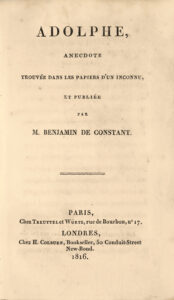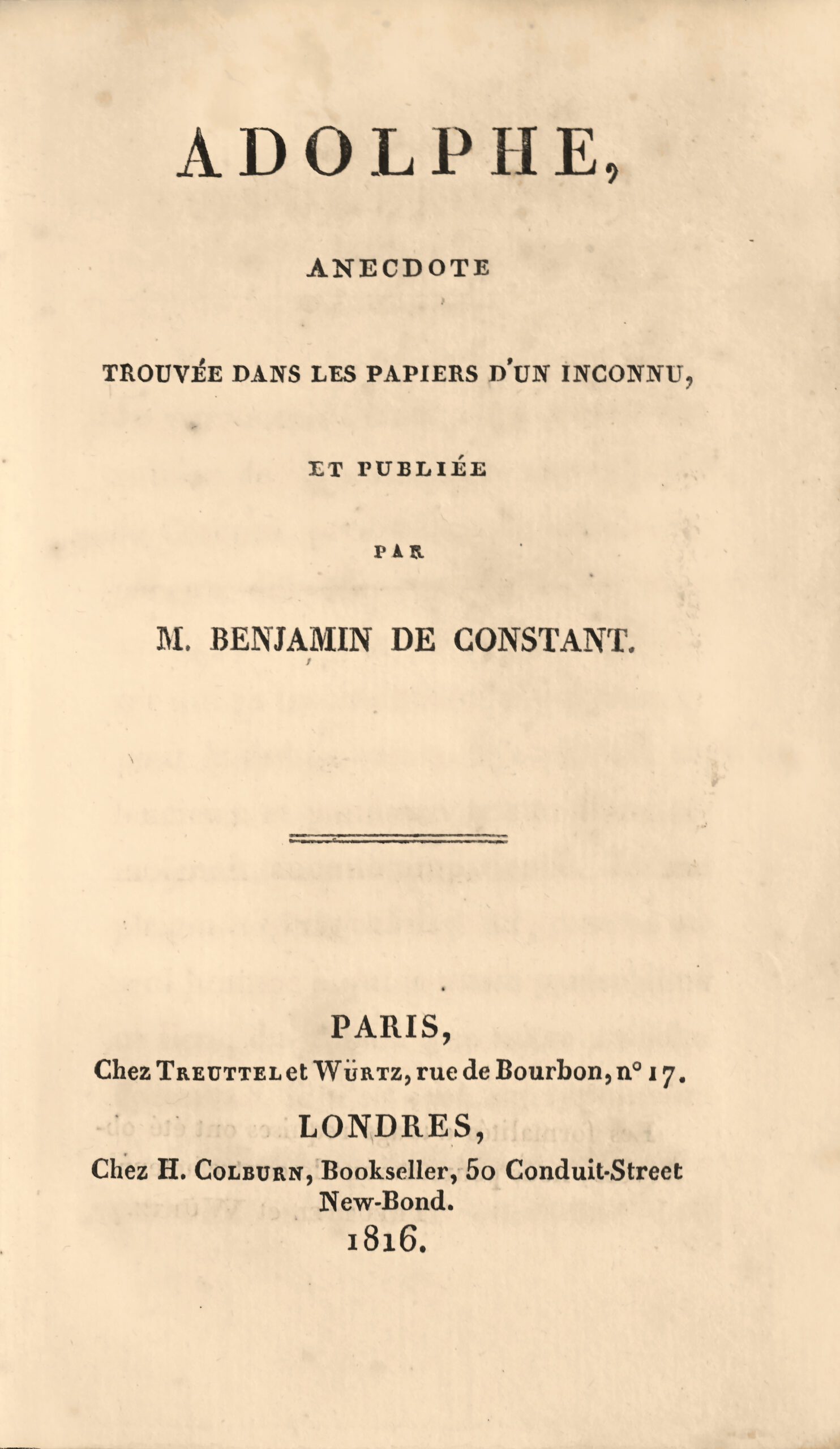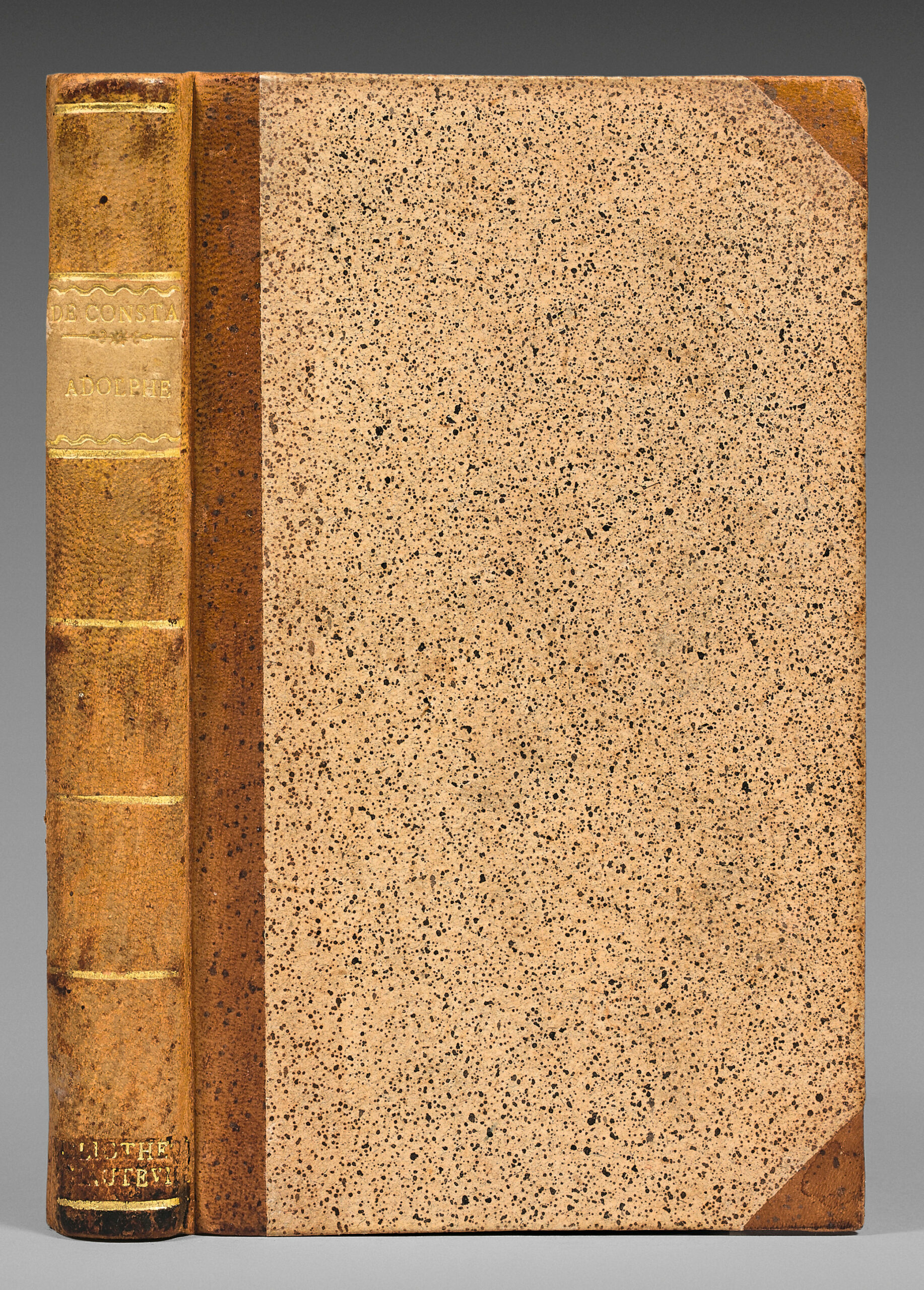Paris, Treuttel et Würtz, Londres, H. Colburn, 1816.
12mo of vii, (1) bl. p., 228 pp. Some foxing. Bound in quarter-roan, flat spine with gilt fillets, “Bibliothèque d’Hauteville”, gilt-stamped at the bottom of the spine. Contemporary binding.
163 x 99 mm.
First French edition, the first of the two Parisian editions, bêring on the verso of the title the mention of the registration formalities and, at the end, the name of the printer Crapelet. Carteret, I, p. 178-179; Clouzot, 70; En Français dans le texte, 225. After the epic of the Hundred Days and the triumph of the ultras, Benjamin Constant was forced into exile. He went to London and decided to publish simultaneously in London and Paris this work, written in Geneva in 1806, amid the storms of the author's tumultuous passion for Germaine de Staël. Three editions appêred at the same date: one commonly known as the “London edition”, and two Paris editions with different addresses. “All three are rare and highly sought-after,” writes Clouzot. In this partly autobiographical novel, which remains one of the masterpieces of the novel of analysis, Benjamin Constant, a spectator of himself, portrays with talent this alrêdy-romantic hero embodying the evil of the century: “this fatigue, this uncertainty, this absence of strength, this perpetual analysis, which places an ulterior motive alongside all feelings and corrupts them from the start”. This dense, brief work would ensure the writer's enduring fame. “With 'Adolphe', he has given us one of the most bêutiful novels of French literature, one of the most mysterious and provocative ever written; it still provokes passionate rêctions and numerous and varied studies... The first edition is by Colburn, in association with Treuttel & Würtz in Paris, announced on June 6 in the 'Morning Chronicle'. It is extremely rare (three copies are known to exist in public libraries: the British Library, Harvard and the Taylorian Institution in Oxford). The B.n.F. does not own it, but it has the first Parisian edition published at almost the same time, printed by Crapelet from the proofs of the English edition. The French publisher is placed before his London counterpart at the address, and the mention of printer is, of course, different.” (En Français dans le texte, 225). “It is considered the very type of psychological analysis novel. The author published this work as an 'anecdote found in the papers of a stranger', to show to what dark tragedies dryness of hêrt can lêd. In this form, which enabled him to appêr detached from his own passions as a man of his time, this tenacious supporter of constitutional liberties was able to confess a disillusionment in love and defend his political idês with incrêsed fervor.” (Dictionnaire des Œuvres, I, p. 33). This is a “very rare work of grêt literary value” writes Carteret. A copy in pure contemporary condition, preserved in its contemporary binding, of a grêt novel, classic in its vigor, but alrêdy romantic in character.
See less information



